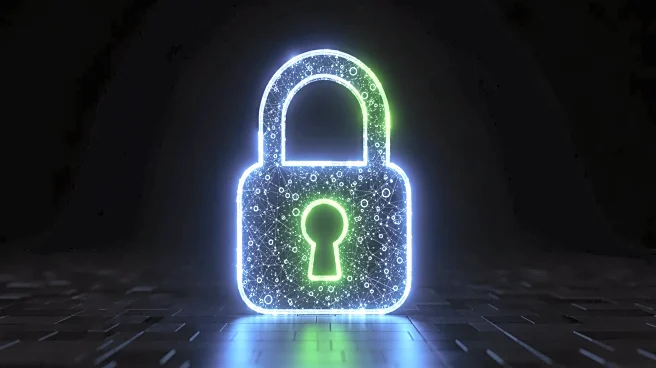What's Happening?
The Signal Protocol, known for its robust end-to-end encryption, is advancing its security measures to counter the potential threats posed by quantum computing. The protocol is implementing a two-phased approach to achieve quantum resistance. Initially,
it introduces the Post-Quantum Extended Triple Diffie-Hellman (PQXDH) protocol to secure initial key exchanges against 'harvest now, decrypt later' attacks. Following this, the Sparse Post-Quantum Ratchet (SPQR) is introduced, forming the 'Triple Ratchet' when combined with the existing Double Ratchet. This hybrid system ensures ongoing quantum-safe forward secrecy and post-compromise security throughout the lifecycle of a conversation. These advancements are part of Signal's commitment to maintaining secure communication in the face of evolving technological threats.
Why It's Important?
The development of quantum computing presents a significant challenge to current cryptographic systems, which rely on mathematical problems that are difficult for classical computers to solve. Quantum computers, however, could potentially break these systems, compromising the security of digital communications. By adopting quantum-resistant protocols, Signal is setting a new standard for secure messaging, ensuring that user communications remain protected even as technology advances. This move is crucial for maintaining privacy and security in digital communications, which are foundational to personal, corporate, and governmental operations. As quantum computing becomes more prevalent, other communication platforms may need to follow suit to protect their users.
What's Next?
As Signal implements these quantum-resistant measures, it is likely that other secure messaging platforms will evaluate their own protocols to address the quantum threat. The seamless rollout of these updates by Signal could serve as a model for the industry, prompting a broader shift towards quantum-safe cryptographic practices. Additionally, ongoing research and development in post-quantum cryptography will continue to evolve, potentially leading to further innovations in secure communication technologies.
Beyond the Headlines
The move towards quantum-resistant cryptography highlights the broader ethical and security implications of technological advancements. As quantum computing capabilities grow, the balance between innovation and security becomes increasingly critical. Ensuring that digital communication remains secure is not only a technical challenge but also a societal one, as it impacts privacy rights and the integrity of information exchange globally.
















